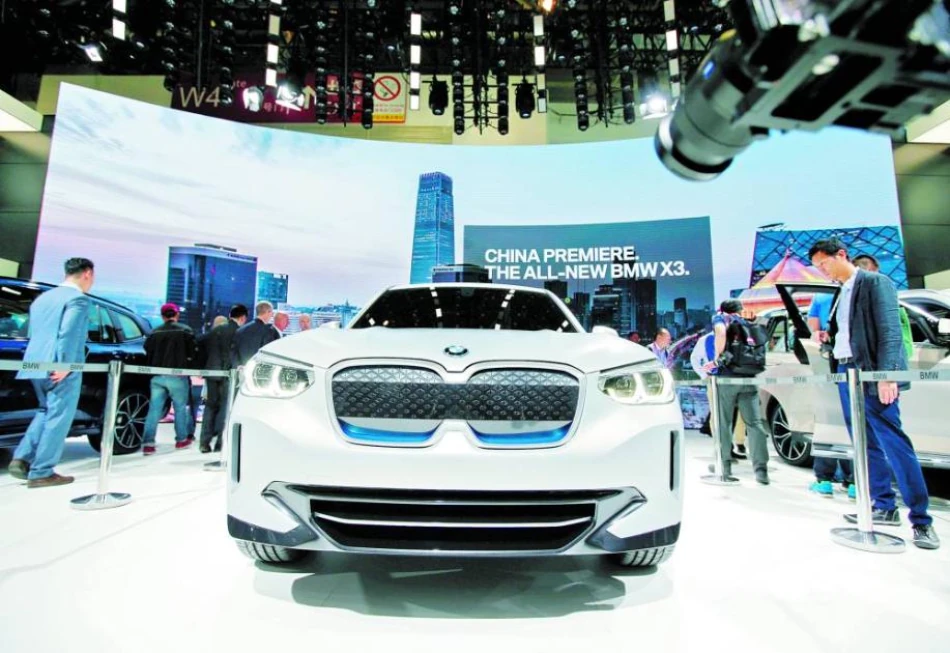
BMW Gears Up to Unveil Electrifying New Fleet of Electric Vehicles
BMW's $20 Billion Gamble: Can Software-Defined Cars Dethrone Tesla and China?
BMW is making its boldest technological leap in decades with the launch of its iX3 electric SUV, the first production vehicle built on its long-awaited Neue Klasse platform. The German automaker's "super brain" architecture represents a fundamental shift toward software-defined vehicles, as European legacy manufacturers scramble to close the gap with Tesla and China's rapidly advancing electric vehicle giants.
The Neue Klasse Revolution
CEO Oliver Zipse unveiled the iX3 as the cornerstone of what BMW calls its most significant individual investment ever—a five-year development journey that reimagines how cars think and operate. The vehicle's central computing system delivers 20 times more processing power than BMW's current generation, consolidating everything from autonomous driving functions to climate control into a unified digital nervous system.
This represents a dramatic departure from traditional automotive architecture, where dozens of separate electronic control units manage different vehicle functions. BMW's "super brain" approach mirrors the centralized computing philosophy that has given Tesla its software advantage since the Model S launch in 2012.
Beyond Hardware: The Software-First Strategy
The iX3's digital platform handles autonomous driving capabilities, infotainment systems, and core vehicle functions through a single computing architecture. This consolidation enables over-the-air updates, continuous feature improvements, and the potential for subscription-based services—revenue streams that have proven lucrative for Tesla and Chinese competitors like XPeng.
Racing Against Time and Competition
BMW's aggressive timeline calls for launching over 40 new and updated vehicles by 2027, a pace that reflects the urgency European automakers feel as they watch market share erode. Tesla maintains its software leadership while Chinese manufacturers like BYD and XPeng have rapidly scaled production and advanced their autonomous driving capabilities.
The competitive pressure is particularly intense in China, where local manufacturers benefit from government support, lower production costs, and faster development cycles. Chinese EV makers have also proven adept at integrating advanced software features that resonate with tech-savvy consumers.
The Premium Defense Strategy
Rather than competing across all market segments, BMW is doubling down on its premium positioning. Zipse emphasized that the company's brand value provides competitive advantages in the segments where it chooses to compete, despite holding just over 3% of the global market share.
This strategy echoes approaches taken by other luxury European brands like Mercedes-Benz and Porsche, which are focusing on high-margin vehicles rather than mass-market competition with Tesla's Model 3 or Chinese manufacturers' more affordable offerings.
Market Implications and Investor Outlook
BMW's massive investment signals a recognition that the automotive industry's future belongs to software-defined vehicles. For investors, this represents both significant risk and opportunity. The company is essentially rebuilding its technological foundation while maintaining current production and profitability.
The success of the Neue Klasse platform will likely determine BMW's relevance in the next decade of automotive evolution. Unlike previous product cycles where mechanical engineering dominated, this transition requires entirely different capabilities in software development, data management, and continuous digital innovation.
The Silicon Valley Challenge
European automakers face a fundamental challenge: competing with companies that think like technology firms rather than traditional manufacturers. Tesla's ability to rapidly deploy new features through software updates, combined with Chinese manufacturers' integration of AI and connectivity, has redefined consumer expectations for vehicle capabilities.
BMW's response suggests the company understands that future automotive competition will be won through computing power and software sophistication rather than traditional metrics like horsepower or build quality. The iX3's 20-fold increase in processing power represents a clear acknowledgment of this new reality.
Most Viewed News

 Omar Rahman
Omar Rahman






